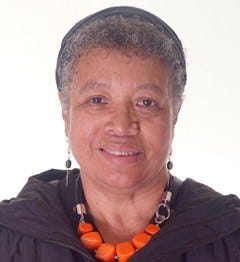Jacqueline Roy: “If you don’t like Black people ‘but I’m alright’, you don’t really like me”
The author on visibility, leaving the ladder down and the curiosity of being mixed
Hi, welcome back to Mixed Messages! This week I’m speaking to author Jacqueline Roy, who is of Black and white heritage. Growing up in London in the ‘50s, Jacqueline was the only Black dual heritage person she knew. She has rectified the lack of Black and dual heritage characters in literature throughout her career, including six books for children and …


